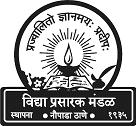 |
|
|||||||||||||||||||||||||||||||||||
|
||||||||||||||||||||||||||||||||||||
|
|||||||||||||||||||||||||||||||||||||||||
|
[PDF] |
INTERNATIONAL SEMINAR ON Mind, Brain and Consciousness |
|
|
Honorary International Advisory Board The Goal, And Bridging the Gap |
Abstracts Accepted
A Journey into Chaos: Creativity and the Unconscious
The capacity to be creative—to produce new concepts, ideas, inventions, objects, or art—is perhaps the most important attribute of the human brain. We know very little, however, about the nature of creativity or its neural basis. Some important questions include: how should we define creativity? How is it related (or unrelated) to high intelligence? What psychological processes or environmental circumstance cause creative insights to occur? How is it related to conscious and unconscious processes? What is happening at the neural level during moments of creativity? How is it related to health or illness, and especially mental illness? This presentation will review introspective accounts from highly creative individuals. These accounts suggest that unconscious processes play an important role in achieving creative insights. Neuroimaging studies of the brain during "REST" (random episodic silent thought, also referred to as the default state) suggest that the association cortices are the primary areas that are active during this state and that the brain is spontaneously reorganizing and acting as a self-organizing system. Neuroimaging studies also suggest that highly creative individuals have more intense activity in association cortices when performing tasks that challenge them to "make assocations." Studies of creative individuals also indicate that they have a higher rate of mental illness than a noncreative comparison group, as well as a higher rate of both creativity and mental illness in their first-degree relatives. This raises interesting questions about the relationship between the nature of the unconscious, the unconscious, and the predisposition to both creativity and mental illness. Key words: Creativity; complexity; Self-organizing systems; Consciousness; The Unconscious …………………………………………………………… * M.D., Ph.D. Andrew H. Woods Chair of Psychiatry, University of Iowa Carver College of Medicine, Iowa City, IA E mail : luann-godlove@uiowa.edu Final Accepted MBC 14-15 Jan 2010.
|
|